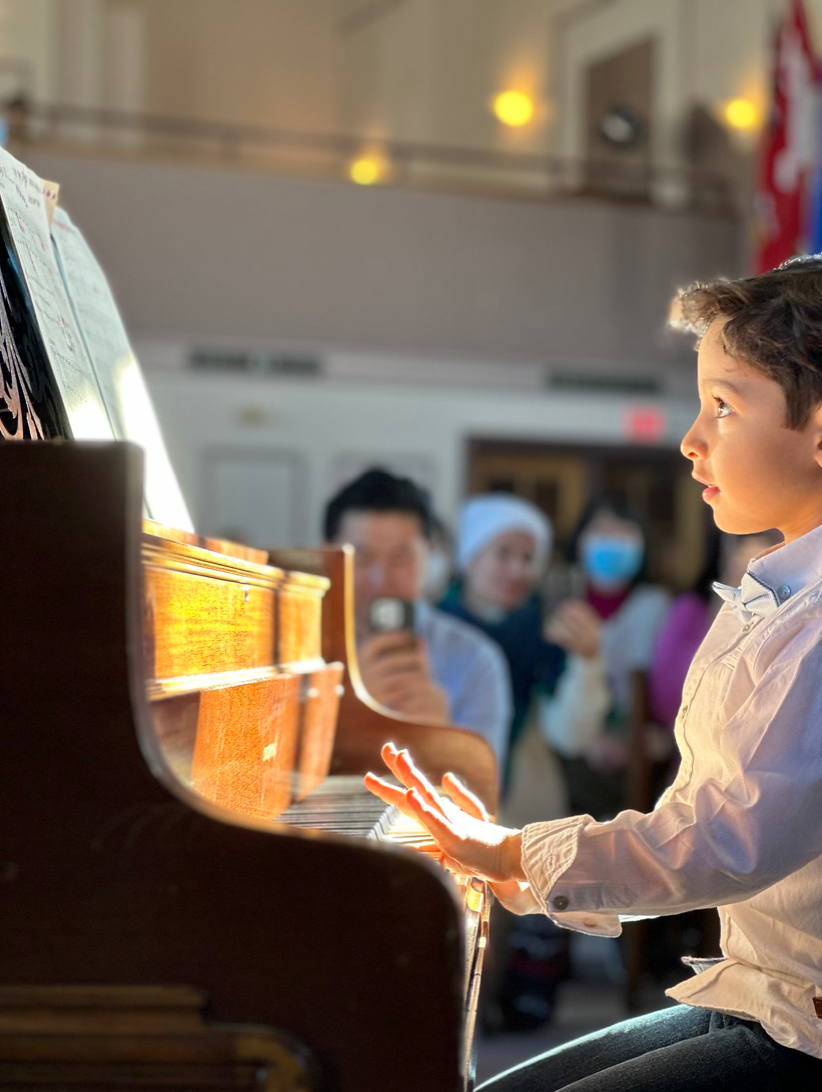Private Music Lessons vs. Group Music Lessons: Which Is Right for Your Child?
- Abigail Natnat
- Aug 18, 2025
- 3 min read
As parents, we all want the best for our children—especially when it comes to their music education. One of the first decisions you'll face is whether to enroll your child in private music lessons or group lessons. Both formats offer rich learning experiences, but they serve different needs and learning styles. Understanding the key differences can help you make the best choice for your child.

Private Music Lessons: One-on-One Attention
Private lessons involve one-on-one instruction with a teacher, allowing the lesson to be tailored specifically to a student’s pace, interests, and learning style. This format is ideal for:
Advanced learners who need personalized feedback.
Students preparing for exams or competitions.
Children who prefer quiet, focused learning environments.
Benefits of private lessons include:
Individualized instruction and faster progression.
Flexibility in lesson content and scheduling.
Immediate feedback and correction.
However, private lessons can sometimes become isolating or overly focused on technical precision rather than the joy of music.
Group Music Lessons: Learning Together, Growing Together
In group music lessons, students learn alongside their peers, often guided by a curriculum designed for group interaction. This creates a vibrant, collaborative atmosphere where music becomes a shared language.
Benefits of group lessons include:
Motivation through peer interaction.
Ensemble playing skills developed from the start.
Learning by listening to others and performing in a group.
Development of social skills and musical empathy.
Group settings also encourage a well-rounded musical understanding, especially when the curriculum integrates ear training, singing, rhythm, movement, and ensemble performance—just like Yamaha’s Music Education System does.
The Yamaha Music Education System: A World-Class Group Experience
The Yamaha Music Education System (YMES) is more than just group learning—it’s a holistic approach designed to nurture the total musical child.
What sets Yamaha apart?
1. Age-Appropriate, Brain-Based Learning
Yamaha courses are structured around developmental stages. For example, the Junior Music Course (ages 4–5) emphasizes listening and singing—skills that are developmentally appropriate at that age. Children develop audiation (hearing music in the mind) before reading notation, similar to how they learn language.
2. Parent Involvement
In the early years, parents participate alongside their children. This strengthens family bonding, encourages home practice, and supports consistent progress.
3. Comprehensive Musicianship
YMES integrates ear training, singing, keyboard playing, ensemble work, improvisation, and composition, all within the group format. This creates not just performers, but well-rounded musicians.
4. Performance Confidence
Yamaha students regularly perform with their peers in a supportive environment, building stage confidence and musical expression. Performing becomes a natural part of the learning journey.
5. Global Standard, Proven Results
YMES is taught in over 40 countries and has produced internationally recognized musicians, composers, and educators. The group format is not a compromise—it’s a global standard that works.
What Parents and Students Are Saying
“We’ve been part of the Yamaha group class for over two years now, and I’m amazed at how much my daughter has grown—not just musically, but socially. She’s become more confident and even helps lead songs during class!”— Lydia M., parent of a 6-year-old student
“I love coming to music class because I get to play songs with my friends! My favourite part is when we play together on the big keyboard.”— Ethan, age 5
“I originally thought group lessons might be too distracting, but I’ve been blown away. The structure of the Yamaha program keeps the kids engaged, and the progress they make is very real. Plus, my son is now composing his own little melodies at home!”— Jason T., parent of a 7-year-old student
“My son started with Yamaha’s group format and transitioned to private lessons later. What impressed me most is how well-rounded he became—he doesn’t just play, he understands music deeply.”— Michelle K., parent and music educator
So, Which One Should You Choose?
There’s no one-size-fits-all answer. Private lessons are ideal for advanced students or those with specific goals, while group lessons, especially Yamaha programs, are perfect for young beginners and those who thrive in social, collaborative environments.
If you’re looking for a joyful, well-rounded, and age-appropriate way to introduce your child to music, the Yamaha group experience is unmatched.
Final Thoughts
Music is a journey—and how your child begins that journey matters. Whether private or group, the goal is to nurture a lifelong love for music. At our studio, we proudly offer both formats to meet the diverse needs of our students. If you’d like to experience the Yamaha difference for yourself, reach out to schedule a free trial class today.







Comments